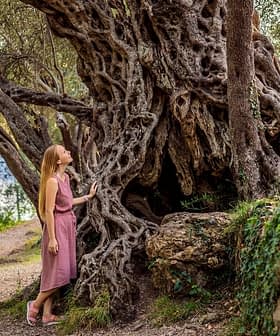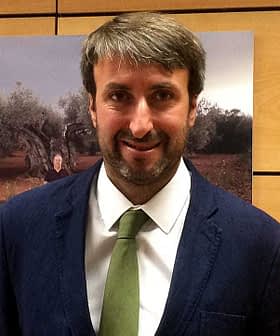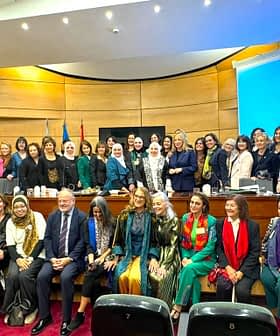Sometimes you can tell a lot about a person’s professional goals from a job application, especially one to lead an intergovernmental organization. On Abdellatif Ghedira’s official submission for the executive director position at the International Olive Council, some key words emerged:
- Sustainable agriculture
- Preserve the environment
- Harmonization of international specifications
- Monitoring of compliance with quality standards
- International technical cooperation
- Sharing of knowledge
- Fair Trade
- Dialogue, transparency and respect
This forward-looking vision belongs to the olive oil sector expert who succeeded Jean-Louis Barjol during this year that coincides with the implementation of the new International Agreement on Olive Oil and Table Olives, which is expected to enter into force on January 1, 2017, and will remain operational until December 31, 2026.
My goal is to respond better to the expectations of the member countries by strengthening the capacity and resources of the IOC.
An agricultural engineer, who graduated from the National Agronomic Institute of Tunisia and the National School of Rural Engineering, Water Resources and Forestry of Paris, Ghedira presided over the last twenty-three years, five boards and led eight structures within the Tunisian Ministry of Agriculture and was a special adviser to several ministers of agriculture for seventeen years.
He oversaw the implementation of decision-making information systems and coordinated the development of sectorial agricultural strategies and budgetary plans and he was awarded the Officer of the Order of Agricultural Merit by the Tunisian Republic.
“From a young age,” reads Ghedira’s biography, “his winter holidays were devoted to family gatherings during the olive harvest and he has been keen on passing on to his children his attachment to the olive tree; a symbol of cooperation, patience and prosperity.”
A little more than a month after taking his office, we talked with the executive director about some issues in the olive oil sector.
OOT: What aspects of olive oil sector would you like to promote or enhance with your direction of the IOC for the coming years?
G: My priorities include establishing a world observatory on the olive tree and its products and developing exchange networks. I also want to see consumers in non-member countries lobby their governments to join the IOC Agreement. I want them to know that IOC membership can bring nothing but advantages for them, firstly the guarantee that their country applies a trade standard that ensures product quality.
My pledge is to place the expertise and dedication of the versatile team of professionals at the Executive Secretariat at the disposal of all the players in the world olive industry in line with the instructions and decisions of the Council of Members.
My goal is to respond better to the expectations of the member countries by strengthening the capacity and resources of the IOC. I also intend to support the work of discussion groups on questions of key importance to the IOC and its future and to strengthen ties with the member countries as well as with international organizations connected with IOC activities.
OOT: Do you think is there a segment of the production supply chain that should be upgraded?
G: Around 74 percent of the olive orchards in the world are farmed traditionally. Mechanization needs to be stepped up in these traditional orchards where harvesting is the most costly cultural practice.
OOT: How do you manage the issue of biodiversity and, on the other hand, the recent trend to apply intensive and super intensive growing systems and patented varieties?
G: Olive growing is fundamental to the Mediterranean region in economic, social and cultural terms and also as a feature of the landscape. It is therefore very important to make the very most of traditional varieties, not just because they produce a distinctive product but also for the sake of sound management of genetic resources. This is where conservation and research into genetic olive resources — and hence biodiversity — step in.
The olive is a crop that is largely rainfed, without irrigation. In this kind of olive farming, which can be termed traditional, the olive trees have adapted over the centuries to the specific soil and climatic aspects of each area. It is therefore crucial to use and conserve these varieties if olive cultivation is to be sustainable and environmentally friendly.
As for super-intensive olive growing, it is almost always practiced in areas ideally suited to this kind of cultivation and accounts for no more than 4 percent of world olive acreage. There is, therefore, room for the different approaches to olive growing — traditional, rainfed or irrigated, intensive or super-intensive — to develop.
In fact, they have to develop because olive oil still only represents just over 3 percent of all the vegetable oils produced in the world. So, obviously, there is scope for expanding this percentage share.
OOT: Regarding the great development of olive growing and the increase in quality of extra virgin olive oils produced in recent years, do you have any comments about this movement toward high-quality production?
G: The IOC does not have specific statistics on the share of what are dubbed premium extra virgin olive oils. I am nevertheless delighted to see that a number of producers are choosing to market top-class product because one of the prime objectives of the IOC is to encourage the quality enhancement of olive oils.




